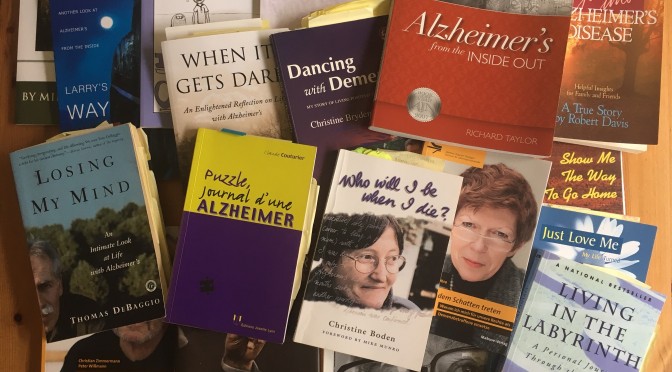by Martina Zimmermann, honorary Associate Professor in Pharmacology at Goethe University Frankfurt, with an MA in Literature and Medicine and a second PhD in Health Humanities at King’s College London.
I am a pharmaceutical scientist by training who specialised in neuropharmacology. For over 15 years, my research interests have been the molecular mechanisms that cause the death of brain cells in conditions like Alzheimer’s disease. While pursuing, and later supervising, laboratory based experimental projects, I more and more often wondered how patients actually experience the condition which I only knew from studies in cell culture and other disease models. The methodologies, models and approaches I used were unsuited to answering this question.
Still, Alzheimer’s patients would not write…
I began looking for patient accounts about a decade ago. At the time, I found only just over a dozen of books published in English, and one diary in French. I was astonished that there were so few, especially because I felt that the popular press had long preferred Alzheimer’s disease to any other subject in its health and wellbeing pages. Also, patients usually have five to ten years between diagnosis and death, and, at the time of clinically perceivable onset, can continue to articulate themselves proficiently in writing, as well as retaining figurative language. Still, Alzheimer’s patients would not write. Continue reading The Poetics and Politics of Alzheimer’s Disease Life-Writing



